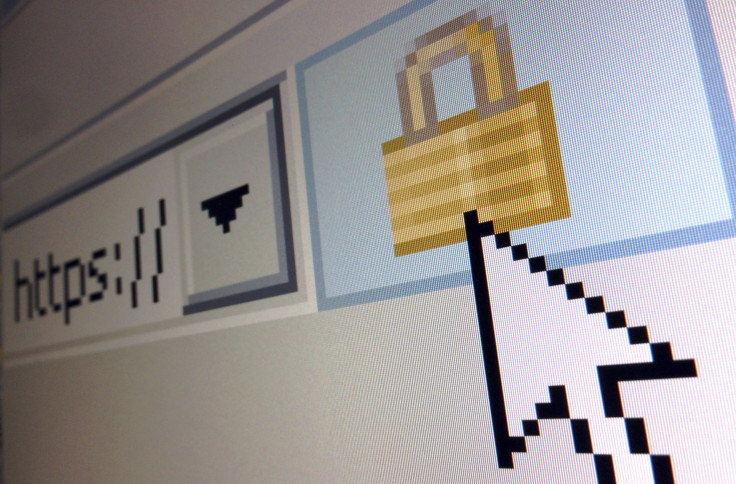Safe Shopping Online: 13 Quick Tips For Secure E-Commerce In 2015 Holiday Season

This year's Cyber Monday was huge for online retail, topping $3 billion in sales for the first time, an increase of 12 percent according to comScore. Americans showed a strong preference for shopping online; ShopperTrak research showed foot traffic to bricks-and-mortar stores fell 10 percent over the weekend. The first 18 days of December will bring in at least $1 billion a day for online retailers, Adobe has predicted.
But underneath lurks danger: One in 86 transactions are targeted with some kind of fraud, ACI Worldwide research shows. Chris Christopher, global insight director of consumer electronics at consultancy IHS, said that consumers need to take steps to avoid attacks. "It's important because if you have one mishap, your credit rating might be in trouble, and it takes a long time to get it fixed," he said.
Here are 13 simple rules to stay safe online:
1. Use a credit card for online purchases. Make sure when you pull the card out of your wallet that its a credit and not a debit card. Here's why: when money is spent on a debit card it's gone immediately and it can be very hard to get it back. Credit card issuers can be an advocate for you if there's a problem and can dispute charges that don't belong.
2. Choose trusted retailers. Big retailers -- the ones you've heard of -- are most likely to have great security. There's a reason why Amazon dominated Black Friday. If you've shopped with Amazon before and you trust them with your information, aim to shop there again. This means fewer retailers have your information on file. It also means that you're giving your information to a company you know and trust, and therefore can keep track of easier.
3. Only buy from encrypted sites. Look in the address bar - is the website secure? Most modern browsers will display the security information of the website. This will show up with the prefix "HTTPS." That means the connection is encrypted. If the browser cannot detect a secure connection, it may not be encrypted and fraudsters could tap into the data transmitted.
4. Prune your online presence. If you don't need an account with a retailer any more, delete it. Storing information all over the Internet is a recipe for disaster, particularly if you can't remember who has what information for which purposes. This may prove difficult, but activists are fighting against the worst offenders to make the process simpler.
5. Check your accounts frequently. If a hack occurs, best to catch it quickly so check your accounts daily if you're doing a lot of online shopping for the holidays. A quick Google search for the name of the retailer followed by "hack" will show if any recent attacks have hit the press.
6. Do not visit websites if you can't verify their identity. Nearly 40,000 websites selling Beats headphones and other electronics were recently shut down by authorities. The very worst thing that could happen would be to fall victim to one of these scams -- spending Christmas morning worrying over who has your information is not ideal.
7. Use strong passwords. Most retailers will prompt you to make a secure password, but it's good practice to use a strong password on websites that don't request it. It's easy to come up with a secure password: longer is better (use at least eight characters), don't use words, use capitals, numbers and punctuation marks. "password1" is no good, nor are easily-guessed passwords like "123456."

8. Do not use the same password twice. It can be a pain to remember passwords for every single website, but services like iCloud Keychain and 1Password can help you remember your passwords. These services encrypt all of your passwords for storage, allowing you to unlock all retailers with one secured access code.
9. Avoid email offers. It could be a phishing attempt. These are hard to verify as genuine, and could be trying to trick you into offering up your information. If in doubt, contact the retailer using information from their website to verify the email's contents. Many spam messages will try to pretend they're from reliable vendors.
10. Careful of links. If you must click on a link in email, hover. Don't click on links without knowing where they lead. Unsafe websites could install unwanted software on your computer and steal your information -- hovering over a link will usually show the link to where the website leads. If in doubt, leave it out.
11. Avoid virtual gifts. If it looks too good to be true, it probably is. If a website is offering free MacBooks, it may sound great, but chances are it's a fake. In fact, data from ACI Worldwide revealed that virtual gift cards have the highest rate of hacking attempts at 9.55 percent.
12. Avoid clicking on ads. Rogue ads can install malware on your computer and log your keystrokes, passing information over to thiefs. An August 2015 report from Cyphort revealed rogue advertising - known as "malvertising" - tripled during 2014, even appearing on trusted websites like the Huffington Post. Don't click on an advert unless you can be absolutely sure of the source -- particularly if it appears on a website you don't trust.
13. Never shop on public Wi-Fi. Especially for secure transactions. You have no idea who is watching you. Every day experts come up with new ways to break through security -- using a hotspot that you have no way of checking security-wise is bad practice.
© Copyright IBTimes 2024. All rights reserved.






















